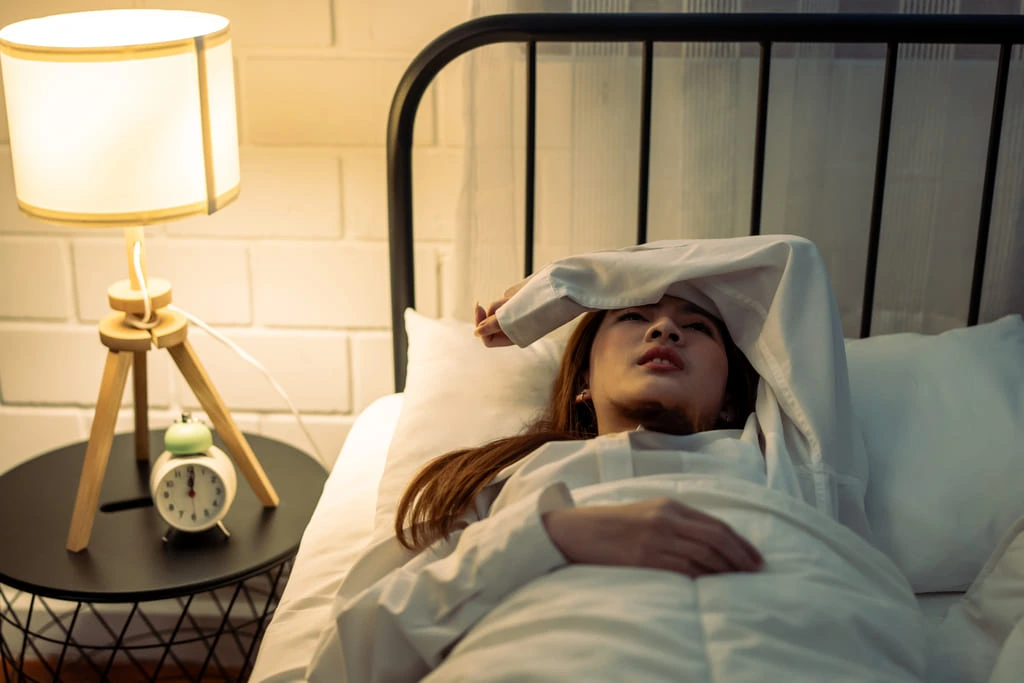Impact of Epilepsy on Sleep
Seizures are sudden bursts of electrical activity in the brain that temporarily disrupt how messages are sent between brain cells. They are often caused by epilepsy, a condition that affects the brain. There are several different types of seizures, but they typically manifest as uncontrollable movements, loss of awareness, and a sudden loss of muscle tone.
While epilepsy affects people differently, nocturnal frontal lobe epilepsy, Landau-Kleffner syndrome and tonic-clonic seizures (upon awakening) are often associated with nocturnal seizures. Nocturnal seizures are incredibly distressing, and many people who experience nocturnal seizures encounter sleep-related anxiety, afraid of having seizures while they sleep. However, when people with epilepsy lack sufficient sleep, their chances of experiencing a seizure increase. This dynamic impacts both mental and physical well-being, with individuals experiencing increased stress from sleep deprivation and anxiety.
It’s critical that people with sleep-related epilepsy receive proactive support and benefit from solutions that prioritise their physical and mental safety, reducing sleep-related anxiety and seizure triggers while minimising possible risks and sleep disorders. Addressing these concerns through education, counselling, and preventive strategies can help individuals and caregivers better cope with the challenges of nocturnal seizures.
Creating a Safe Sleep Environment
During a nocturnal seizure, there may be a risk of falling out of bed, depending on the severity and individual circumstances. In such cases, it’s advisable to opt for a low-level bed or a mattress on the floor to mitigate the impact of any potential fall and reduce the chances of injuries. Sleeping in the middle of the best is also effective, as it can reduce the likelihood of falling out of bed during a seizure. Bed guards are also useful in preventing injuries, as they actively stop people from falling. However, this isn’t always an advisable step due to the possibility of arms and legs becoming trapped or injured, and it should be consulted with a care team.
Care teams are groups of multidisciplinary professionals who provide proactive care and tailored support plans, which include planning effective safety measures for nighttime seizures. An occupational therapist (OT), a member of the care team, can provide a ‘needs assessment’. This involves the OT assessing the safety of your home and identifying any needed support or safety equipment. By understanding a person’s unique needs, care teams identify possible risks and find the most appropriate solutions, reducing sleep-related anxiety and improving well-being.
Injury Risks During Nighttime Seizure Episodes

Seizures can cause sudden and uncontrolled movements, leading individuals to fall out of bed or hit their heads. The risk of falling is particularly concerning for individuals with certain types of seizures, such as tonic-clonic seizures, which involve substantial muscle contractions. The fear of not knowing whether a seizure will happen during sleep can lead to extreme anxiety, with individuals developing a fear of falling asleep, which poses a greater risk to their physical health. Implementing safety measures such as sleeping on a bed closer to the floor and removing any sharp objects can help prevent potential injuries. Support groups and mental health professionals can also provide advice for addressing sleep-related anxiety, providing useful grounding tools for panic attacks and assisting people to manage their fears.
Muscle injuries are another concern during nighttime seizures. Seizure-related movements can be forceful and uncontrolled, potentially leading to muscle strains or tears. While these injuries can occur in any part of the body, they are particularly common in the arms and legs. Implementing strategies to minimise the impact of seizure-related movements, such as using soft bedding with extra padding, can help reduce the risk of muscle injuries. Care teams also create personalised support plans, which include detailed advice on how to tackle nocturnal seizures and prevent injuries.
The Vital Role of The Overnight Caregiver
The role of an overnight caregiver is indispensable in ensuring the safety and well-being of individuals experiencing nocturnal seizures. Overnight caregivers monitor activity, responding promptly to any emergency situations and offering assistance as needed. Through this timely intervention, they mitigate the risks associated with sleep seizures, such as injury from falls. Moreover, overnight caregivers provide invaluable emotional support during what can be a challenging and isolating experience. The presence of a caregiver offers peace of mind, reducing feelings of anxiety or fear surrounding nighttime seizures. In return, this helps promote a healthier lifestyle, where individuals can focus on getting sleep rather than being anxious and anticipating sleep seizures.
Additionally, caregivers can offer practical assistance with daily activities, medication management, and personal care, further enhancing the individual’s overall quality of life. Their supportive presence fosters a sense of security and stability, allowing individuals to navigate the complexities of epilepsy management with greater confidence and resilience.
Tips for Individuals Struggling with Nocturnal Seizures
Nocturnal seizures affect everybody differently, but utilising evidence-based advice can help people navigate most nocturnal seizures. With that said, it’s important to consider individual circumstances, seizure types, and risk factors, as what works for one person may cause an increased risk for others. By actively engaging with healthcare professionals and seeking support, individuals living with sleep seizures can feel empowered and supported in their journey towards better seizure management and improved sleep quality.
Below, we list proactive tips for individuals struggling with sleep and epilepsy.
Don’t Sleep on a Sofa or Chair
Sofas and chairs often have uneven surfaces and limited space, making individuals more susceptible to falls and related injuries. They’re also more likely to cause muscle strain and stiffness, causing additional discomfort. Opting for a proper bed with a supportive mattress significantly reduces the risk of harm during seizure episodes, promoting a safer and more comfortable sleep environment.
Sleep in The Middle of The Bed
Seizures can cause sudden movements, and individuals may fall off the bed if positioned too close to the edge. Sleeping in the middle of the bed reduces the likelihood of falls and minimises the risk of injury. Additionally, opting for a bed closer to the floor will mitigate the impact of potential falls and is generally recommended for individuals with a seizure disorder.
Place Pillows Around the Bed If Your Bed is High
For individuals with higher beds, placing pillows strategically around the bed serves as an additional safety measure. These pillows act as a protective barrier, cushioning any potential falls and reducing the risk of injury if nocturnal seizures happen. Adding protective mats with soft surfaces will also help to minimise potential falls and create a layer of added security. However, caregivers may want to invest in additional safety alternatives, such as a lower bed, to mitigate potential falls further.
Adjusting the bedroom layout to accommodate specific needs contributes to a safer sleep environment, providing peace of mind for both individuals and their caregivers.
Get Support From an Overnight Caregiver
Getting support from an overnight caregiver is crucial for individuals struggling with nocturnal seizures. Knowing that there is someone present who can respond promptly when seizures happen can alleviate anxiety and fear associated with nighttime seizures. This sense of safety allows individuals to rest more comfortably, knowing they are not alone.
Leaf Complex Care provides a proactive and person-centred approach to seizure management. Our support workers ensure that safety and quality of life remain paramount while valuing shared decision-making and collaborating with individuals and their families.
Importance of Addressing Nocturnal Seizure Risks
Nocturnal seizures can be an incredibly distressing and isolating experience, causing both physical and emotional exhaustion. Sleep is designed to be regenerative, and when this is consistently compromised, it affects people’s quality of life and puts their health at risk. There’s a range of services available that provide life-changing support to people with epilepsy and help them discover strategies that increase well-being while reducing potential seizure risks. By taking proactive steps, people feel empowered and gain control over their lives.

Epilepsy Support with Leaf Complex Care
At Leaf Complex Care, we understand the unique challenges faced by individuals living with epilepsy, and we are committed to providing person-centred support and tailored care. We provide a range of support services designed to promote safety, well-being, and independence.
Valuing shared decision-making, our support workers collaborate with healthcare teams, care recipients and family members to create proactive care plans, ensuring that support is humanised and preferences are respected.
We provide CQC-regulated support across the UK, with offices are located in Bristol, South East, Somerset and Birmingham.
To learn more about epilepsy support, contact Leaf Complex Care today.
Whether you’re seeking assistance with medication management, daily living, or creating a safe sleep environment, our team is here to help.


